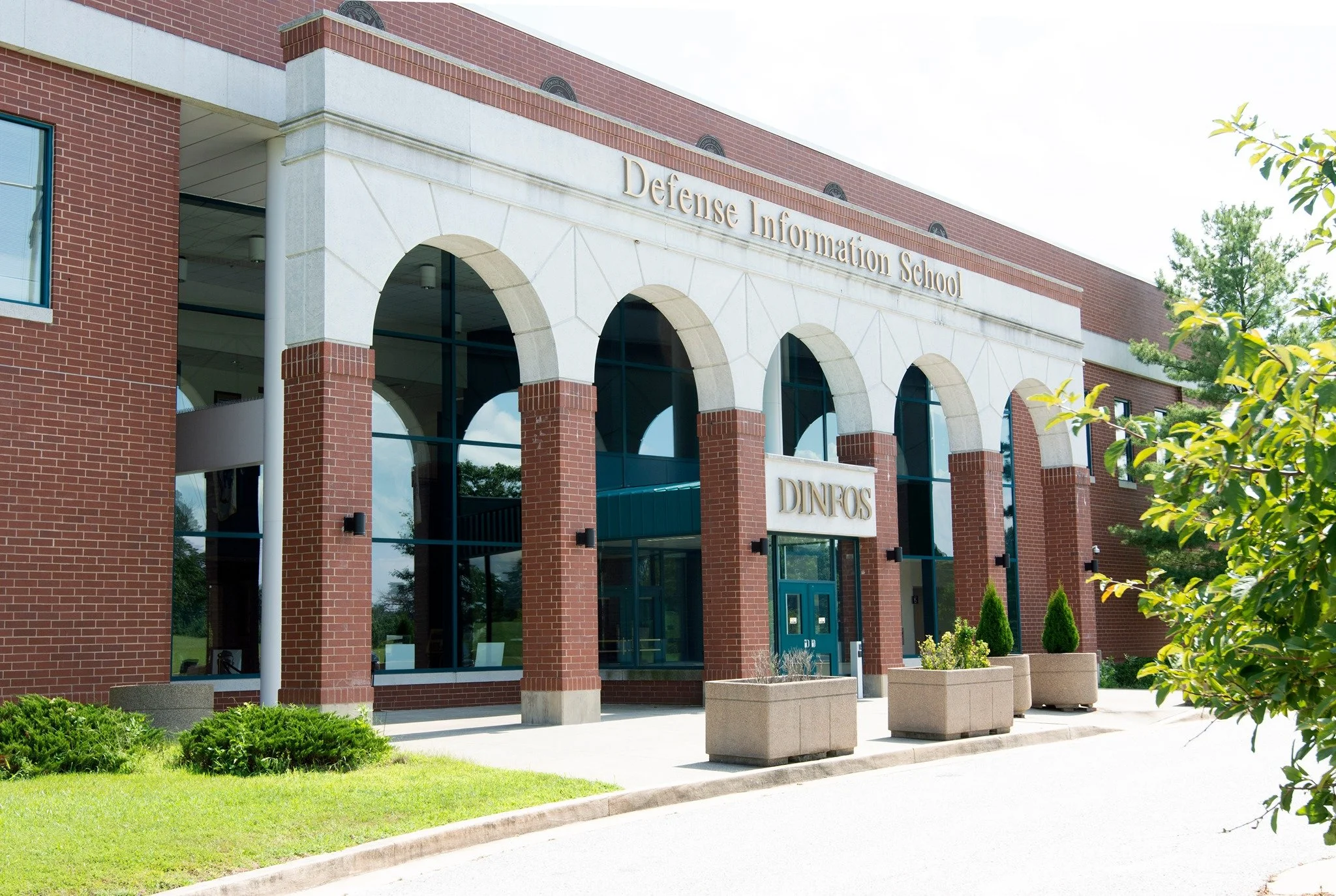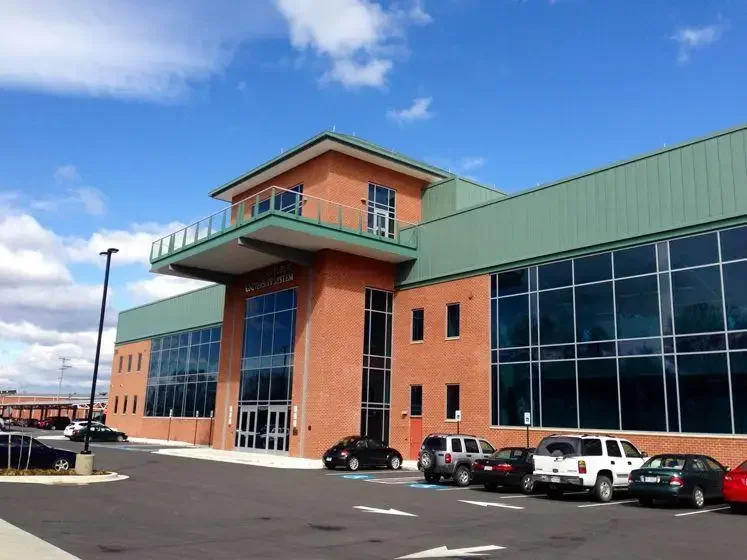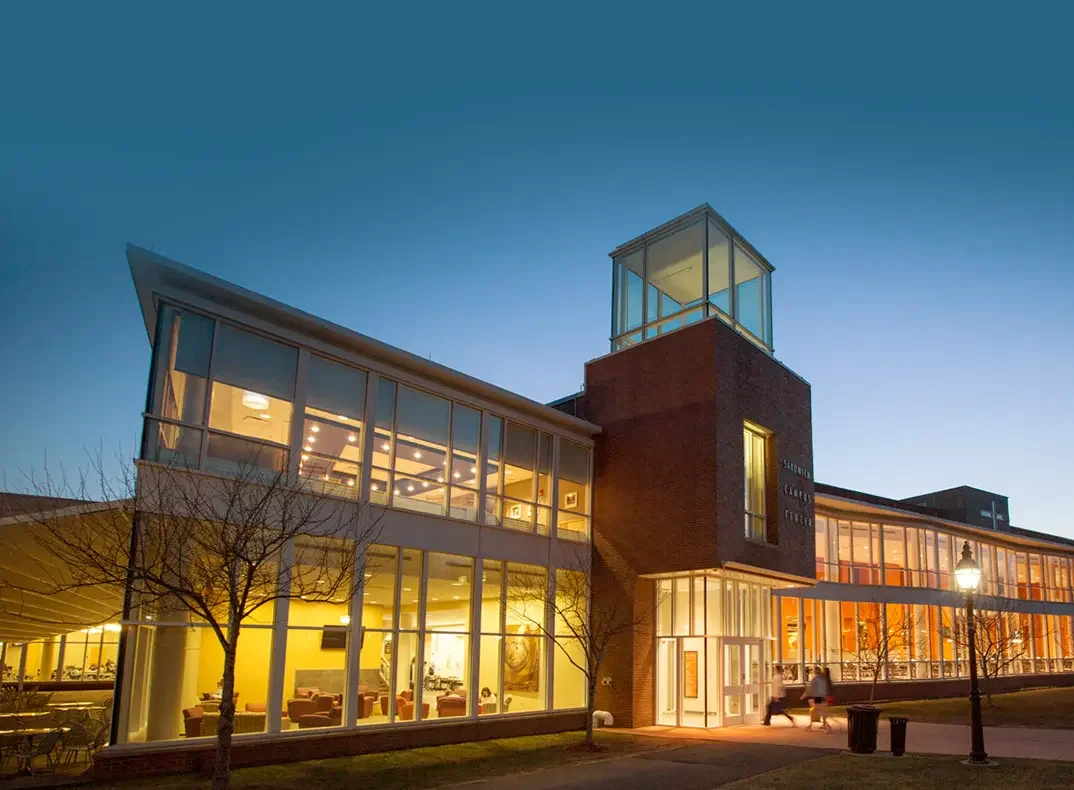Education
My education has never followed a traditional path. It really began at the Defense Information School, where I spent months in eight-hour lectures followed by long nights of writing and production work to qualify as a public affairs specialist. What came next was years of learning through experience in deployment zones, newsrooms, and command centers before returning to DINFOS to teach my craft. Later, I earned my bachelor’s degree in management from American Military University, using that program to connect leadership principles with communication practice. Today, I am pursuing a master’s in communication at Merrimack College, not for validation, but to continue developing my skills. Each stage of my education reminds me that learning is ongoing, and experience becomes knowledge only when you take the time to understand and apply it.
Defense Information School, Public Affairs/ Communication Strategy Qualification Course
Between 2006 and 2022, I attended multiple courses at the Defense Information School (DINFOS). This ranged from my initial training as a photojournalist, my two-time instructor certification, my Pubic Affairs/ Communication Strategy Qualification Course, and more. I selected this communication plan because it represents a clean, unclassified representation of the culmination of my training and experience in military public affairs. In 2022, I began teaching the PACS-Q course, which required demonstrating mastery of communication planning, research, and evaluation. This plan for the 15th Marine Expeditionary Unit’s Force Resilience Program reflects my ability to apply those competencies to a real-world scenario. I chose the 15th MEU due to my familiarity with its mission from time spent with various Marine Expeditionary Units. The project combined initial assessment, research, audience analysis, strategy and tactical planning, and message development to support resilience across Marines, families, and leaders.
When I created this plan, I felt pressure to deliver because it would be graded by my colleagues, and I felt like I would be judged as a practitioner for any mistakes. It wasn’t that bad, and the version you will see is after taking some feedback from fellow experts, which is where we all shine. The skills I refined through this work were providing structured planning as opposed to a rough plan, I challenged myself to look for quantifiable, measurable objectives, and I strove for message alignment through a somewhat contentious information environment, given the news of training deaths was still recent.
Global Communication, American Military University
I recently completed my undergraduate degree in December of 2024. I selected this paper from my undergraduate global communication course because it represents an academic instance in my undergraduate degree where I connected professional communication theory to real-world business strategy. Using Cisco Systems as a case study, I examined how communication planning, audience segmentation, and transparency allow a global company to navigate complex cultural and operational environments. The assignment helped me validate in a measured environment that my military communication training provided the sound fundamentals that also serve professionals in the private sector.
Merrimack College, M. A. in Communications
I began my program with Merrimack College with COMM 5010, so I don’t have any academic work to show beyond what I have submitted for that course. I selected my response to Research Question 5 from COMM 5010 because it completely reframed how I see organizational communication. The assignment asked us to connect research theory to real-world understanding, and I realized that communication does not simply exist within organizations, but it creates them. The organization itself is made of communication, built and sustained through shared meaning and collective belief, much like Noah Harari’s idea of humanity’s greatest adaptation is the ability to adopt “shared fictions.” That shift in perspective helped me see how structure, policy, and culture are not fixed systems but ongoing acts of communication. This changed the way I approach both leadership and consulting, reminding me to focus less on hierarchy and more on interaction. The skills I gained perspective on were conceptual analysis and critical reflection. My key takeaway was that there is much to learn from theory.


